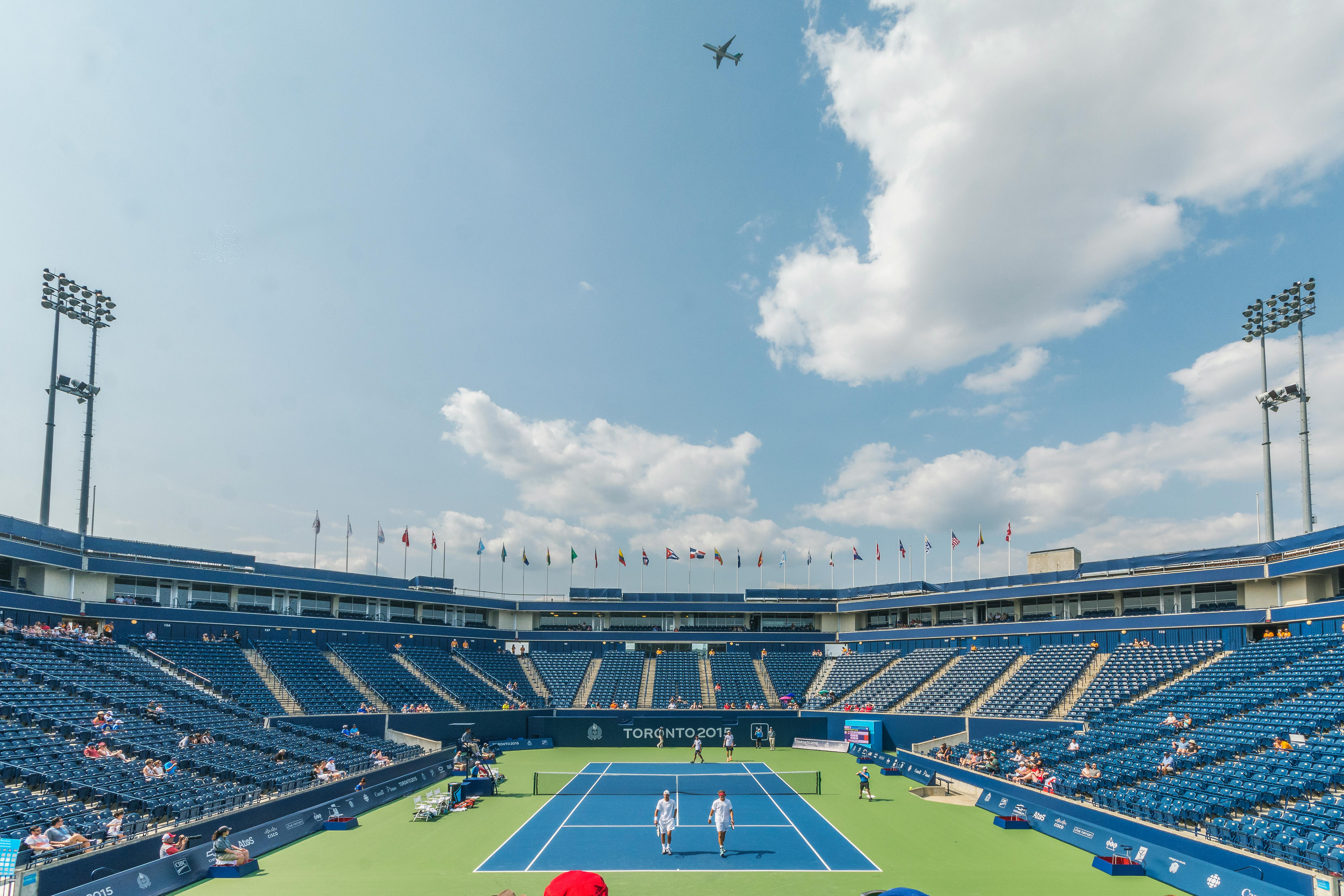I don’t know about you, but there are certain things in life that I just don’t understand. I would consider myself a huge fan of logic, and that’s why I don’t get the major league playoff system! First of all, I applaud baseball for allowing only 8 teams in the postseason. I think the reason for being so selective in the number of teams allowed in the postseason is to magnify the importance of the regular season. Obviously, this isn’t such a high priority for sports like basketball and hockey, which allow more than fifty percent of their teams to make the playoffs. But here’s my question: Why not seed the teams in the order of best record to worst? This would seem to ensure that the best teams are rewarded for their work during a 162-game season, and also ensure that they are not forced to face a higher quality opponent than they should be facing. Sounds simple doesn’t it? Objective no. Apparently, it would be too detrimental to the game for two teams from the same division to meet in the first round. Unfortunately, when there are only 4 playoff teams in your league to begin with, this doesn’t leave you with many other options when it comes to matchups.
What drives me even crazier is that in the early stages of the wild card, I don’t even know if they had a system in place! Let’s take 1995 in the American League as an example. The Indians had by far the best record in the game. Then came the Red Sox, the Yankees (as the wild card team) and the Mariners who won the West. Ok, I understand that if the best team played the worst, then the Yankees would play the Red Sox in round 1. Okay, let’s remove that and have the Indians play the wild card team, the Yankees, who had the 3rd best record. , and then the second-seeded Rex Sox can play Seattle, which finished with the worst record. Well, apparently that was too easy. Instead, the Indians played the Red Sox, who finished seven games ahead of the Yankees but apparently still didn’t deserve home-court advantage in the first round, and the Mariners hosted the Yankees. If anyone can find logic in that please let me know. But enough of the baseball stupidity, I don’t want to be here all day. The fact is, I’ve always wondered if the way baseball chose its matchups really had any effect on who would eventually win the World Series. Would we have seen a different champion be crowned if baseball had simply placed teams, 1-4 in each league, and we hadn’t worried about which division the wild card came from? Well, maybe it’s not too late.
Let’s start with the years that weren’t affected. The 1995 playoffs would have seen different matchups in the first round and finally the American League Championship Series, but in the end the Braves and Indians would meet for the championship, with the Braves at the top. 1998 and 2001 would not be affected at all (this happened because the wild card team resided in the same division as the team with the best record, but the wild card team had the second or third best overall record). And thank God for that, because the 2001 World Series was unforgettable. The last three years (2003-’05) would also remain largely unchanged, with the exception of the 2004 National League matchups. The Astros would be forced to play the Cardinals in the first round, and the Braves would play the the Dodgers, so the Astros would go home a round early and the Braves would get to another NLCS, eventually losing to the Cards. In the end, the Red Sox break the curse against St. Louis. That leaves 5 seasons in which the “new format” gives us a strong chance that a different champion will be crowned.
Let’s start with 1996. The American League would be played the same way, with the Yankees defeating Baltimore 4 games to 1 in the American League Championship Series. However, there would be a shakeup in the National League playoffs, when the Braves would meet the Cardinals in the first round, and division foes San Diego and Los Angeles, the second and third seeds respectively, would also face off. to face. In the first matchup, the Braves would also fall behind 3 games to 1 (just as they did in their NLCS matchup with the Cardinals), except this time they wouldn’t have time to win the next three, because the 5-game series it would end. The Padres would take care of the Dodgers in 4 games, but take no more than 1 game away from the Cardinals, who would win the NLCL 4 games to 1. This would leave us with a showdown with possibly the two most storied franchises in baseball. history. This time there would be no one named Mark Wohlers on the opposing pitching staff to allow the Yankees a great home run in Game 4, and the Cardinals would defeat the Yankees 4 games to 1.
Next we have 1997. Instead of the Mariners getting an early showdown against the # 1-seeded Orioles, they would play the Yankees in the first round. And just like 1995, it would be a classic 5-game series, with the Mariners back at the top. The Indians would still manage to beat the Orioles, this time in the first round, but they would lose in six games to the Mariners, who dominated them in the regular season taking 8 of the 11 games. His opponent would be the Florida Marlins, whose path to the World Series did not change with the new seed. However, the Marlins could not resolve the brilliance of Randy Johnson, who would win 3 games, including the decisive game 7, and collect the first of his two World Series MVP awards. Call me crazy, but with a championship under their belt, maybe Griffey Jr, Arod, and Randy would have stayed a few more years instead of going elsewhere.
In 1999, the Braves would have a slightly different path to the World Series, but they would still get there by sweeping first the Mets and then the Diamondbacks in six games. The American League would be a little more shocked. The Yankees and Red Sox would meet in round 1, rather than in the American League Championship Series. Their 1999 ALCS meeting came after a Yankees sweep over the Rangers and a tough 5-game Red Sox fight with Cleveland. With more fuel in their tank this time, and following a regular season during which the Red Sox took 8 of 12 games against NY, the Red Sox would build on their momentum for a 3-game win to 1. The Indians would defeat Texas, but then they would lose to the Red Sox, who also dominated them in the regular season. However, the curse would have to wait a few more years to be broken, as the Braves doubled down on their regular-season feat, beating the Red Sox in 4 of 6 games. Can you say 90’s team?
Moving on, in 2000 the National League playoffs would advance without any modification. In the American League, however, there were once again some serious shakes. Two rivals from the American League West in Oakland and Seattle would meet in a wild-card showdown, and the Yankees would play the White Sox. The White Sox, the top seeds, took care of the Yankees in 4 games, and the Athletics would win in a close 5-game series against Seattle. The White Sox took over the Athletics during the 2000 regular season, and little changed in the American League Championship Series, as the White Sox won series games 4-2, moving on to the World Series. Then, in dramatic fashion, the White Sox did what they couldn’t do in the previous 82 seasons. They would win their first World Series title since 1917.
We finally get to 2002. Once again, the NL is not affected by the seeding process. In the American League, the matchups are reversed, as the Angels play the Athletics and the Yankees play the Twins. Oakland’s pitching is too much for the Angels ‘explosive offense and, ultimately, the Athletics’ victory in 4 close games. The Yankees are pushed over the edge by the upstart Twins, but Minnesota falls short in a tough 5-game series. For the second year in a row, the Athletics face the Yankees. But this time, in a seven-game series, the Athletics proved too much for the Yankees. After falling behind 3 games to 2, the Athletics get back-to-back wins from Tim Hudson and Barry Zito, and Oakland moves on to the World Series. Once again we would have an All-California final, but this time, instead of the Angels breaking the party, it turns out to be a battle of the bays as Oakland takes on San Francisco. The Giants take advantage of Oakland’s tired legs early on, but in the end the Athletics have too many great arms in their rotation, and Oakland wins it in 6 games. “Money Ball” has its first title.
So let’s recap: The Braves are the team of the 90s, winning 2 World Series titles, 4 pennants and 8 consecutive division titles; The White Sox make an early run to be this decade’s team with 2 titles in 6 seasons; Seattle wins a championship, which helps preserve its roster; and the Yankees make several offers for the jackpot, but they come up short all but once. Do you think it’s crazy? Maybe. But not as crazy as the current baseball playoff system. Think about it.
Learn more at www.sportslizard.com.


